Hot, humid and loaded with culture and fun, The Bayou State of Louisiana is the birthplace of jazz and home to a world-renowned Mardi Gras celebration every year. Its hot, humid summers and year-round mild weather make owning a pool an even more attractive option for Louisiana homeowners who want a place to escape the throngs of tourists who visit each year, and a cool spot to beat the heat while enjoying a backyard crawfish boil with loved ones.
If you’re thinking of taking the plunge into pool ownership, remember that your pool is just one part of the bigger backyard picture. You’ll also want to think about the little things that make up the entirety of your backyard, including decking and landscaping. If you want your backyard to weave in a place to cookout or get some shade, like a covered pergola or hammock to kick back, keep those elements in mind, too!
You’ll also want to think about any features you want your pool to have so you can get the most enjoyment out of it. what features your pool should have in order to make the most of it. Maybe you want a tanning ledge to soak up some sun without getting too wet. On the more practical end, an automatic pool cover can help to reduce energy costs and the amount of time you spend on maintenance.
From Monroe to Lafayette and other areas of The Bayou State, Latham can help you build the inground pool of your dreams. To help you better understand your options, we’ll walk you through considerations for fiberglass or vinyl liner pools, as well as maintenance tips and important Louisiana state and local pool laws.
Fiberglass Pools for Louisiana
Fiberglass pools are known for their strength, durability and ease of maintenance. And they’re also a gorgeous sight to behold! Given Louisiana’s year-round mild temperatures and humidity, fiberglass pools can be an outstanding choice for Bayou State residents due to their low-maintenance qualities and greater resistance to algae.
The smooth, crystalline surface of a fiberglass pool makes them comfortable underfoot when wading in. And because fiberglass pool shells are manufactured off-site and transported to an excavated area in your backyard, prefabricated fiberglass pools can be installed faster, allowing you to enjoy your pool sooner rather than later!
Learn more about the benefits of owning a fiberglass pool.
Mold and Algae-Resistant
Louisiana is home to swamps, marshes and hot, humid weather. And while these conditions practically beg for a pool, giving residents a place to cool off, LA residents will want to choose a pool that’s easy to maintain. Louisiana’s intense humidity can create optimum conditions for pools to more easily develop algae and mold. The smooth surface of a fiberglass pool makes it less susceptible to developing algae bloom, making them an especially attractive option to Louisiana homeowners.
Fiberglass pools are easy to clean and require less upkeep than other types of pool materials. They’re also less prone to developing calcium deposits, making them an outstanding choice that’s easy on the eyes and easy on the maintenance!
Inground Fiberglass Pool Designs for the Bayou State
Whether you prefer the sublime symmetry of a rectangular fiberglass pool or the winding curves of a freeform pool, fiberglass pools come in a variety of shapes, sizes and colors. But when it comes to pool design, choosing a shape is just one part of the equation. In order to find the right pool for your needs, think about what you want to get out of your pool. How will it complement your lifestyle and offer you the most enjoyment in the years to come?
When planning your pool, think about how – and who – will use it:
- Do you have young children or teens?
- Will they bring friends over to use the pool?
- Will seniors or mobility compromised individuals use the pool?
- What safety features might you need in order for everyone to enjoy the pool?
- How often do you plan to use your pool?
- Do you want your pool to be the center of the action in your backyard? Or do you want it to be part of a larger backyard oasis, sharing space with features like an outdoor grilling station or garden?
- Do you enjoy entertaining? If so, how many people do you typically have at your backyard get-togethers?
- Do you plan to use your pool for exercise, relaxation or both?
When planning your pool, you’ll want to keep those considerations in mind along with any geographic features of your backyard. For instance, you may have a smaller or more irregularly shaped yard. Not to worry! There’s a pool to fit every backyard!
You’ll also want to balance those considerations with local laws requiring pool fencing. Louisiana requires a fence or barrier surrounding all residential swimming pools deeper than 2.9 feet. This barrier must be at least 4 feet high on all sides.
Making an autocover part of your package can serve as a convenient safety barrier to prevent kids and pets from accidentally falling in when your pool is unattended. It can also help prevent unauthorized use of your pool when you’re not around, should anyone decide to wander onto your property.
An autocover can also help you save on maintenance, by reducing water evaporation and maintenance – especially important when you factor in Louisiana’s scorching hot summer weather!
Although you may have a clear vision for what you want your pool to look like, be open to suggestions! Based on your wants, needs and any constraints of your backyard, a licensed professional pool builder may help you to realize that a different pool shape or size may work better for your needs.
With more than 65 years of experience, Latham can help you design a pool that works with nearly any type of yard. Check out some examples below of some of the breathtaking inground pools we’ve built throughout Louisiana. Don’t see your dream pool here? No worries! That doesn’t mean it’s not possible! Get in touch with a local independent builder to take a peek at pool photos and videos in their portfolio that may not yet be available online!
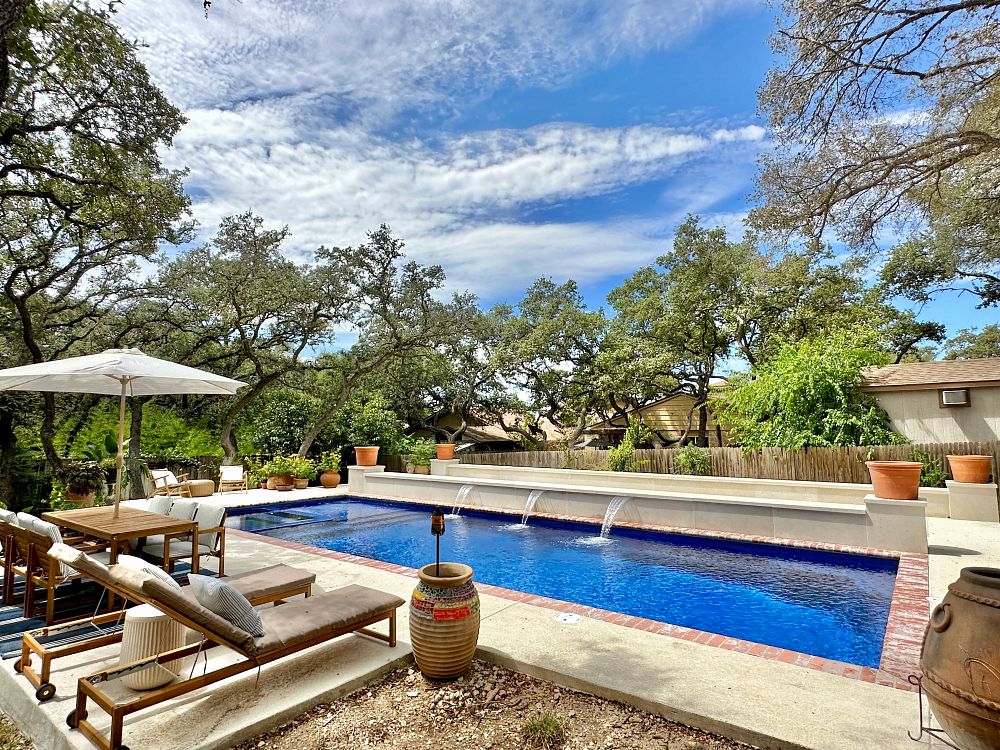
Smaller Pool Considerations in Louisiana
Louisiana is dominated by flat land – which is great news for residents thinking about installing a pool. Flat land makes it that much easier – and potentially cheaper – to excavate and transport a brand new fiberglass pool shell to your backyard, without having to worry about leveling any uneven or rocky terrain lurking beneath the soil.
However, Louisiana is prone to tropical storms, hurricanes and floods, which can pose their own set of challenges to residents – with or without a pool. For this reason, a smaller sized pool can be an attractive option for Louisianians, especially those who live in areas near bodies of water, such as New Orleans, Lafayette, Baton Rouge and Houma.
That’s not to say that small pools can’t pack a lot of fun in a more compact package. For instance, folks who live in larger, more densely populated urban areas like NoLa, Baton Rouge and Shreveport may have smaller backyards. For instance, the rectangular-shaped 12’ x 25’ Corinthian is a smaller-sized option with slip-resistant steps and an ultra-wide top step that can double as a tanning ledge or wading area for the kids. As an added bonus, if you’re thinking about adding an autocover, it can be less expensive to add a pre-cut automatic pool cover to a rectangular pool as opposed to requiring a custom-designed autocover for a more bespoke freeform style. This can add onto your total cost savings.
Smaller-shaped rectangular plunge pools, like the 10’ x 16’ Milan can be another excellent option. With plenty of room for swimming laps or sneaking in some exercise, the Milan also offers lots of space to kick back and relax with a cool beverage in hand, watching the big game. (Geaux Saints!)
If freeform pools call your name, the 12’ x 26’ Bermuda is another great choice. Its slip-resistant scalloped corner steps offer a distinctive look that adds an element of safety for older or mobility-compromised individuals. It also has ample swim-up seating to get the good times and conversation flowing when entertaining guests.
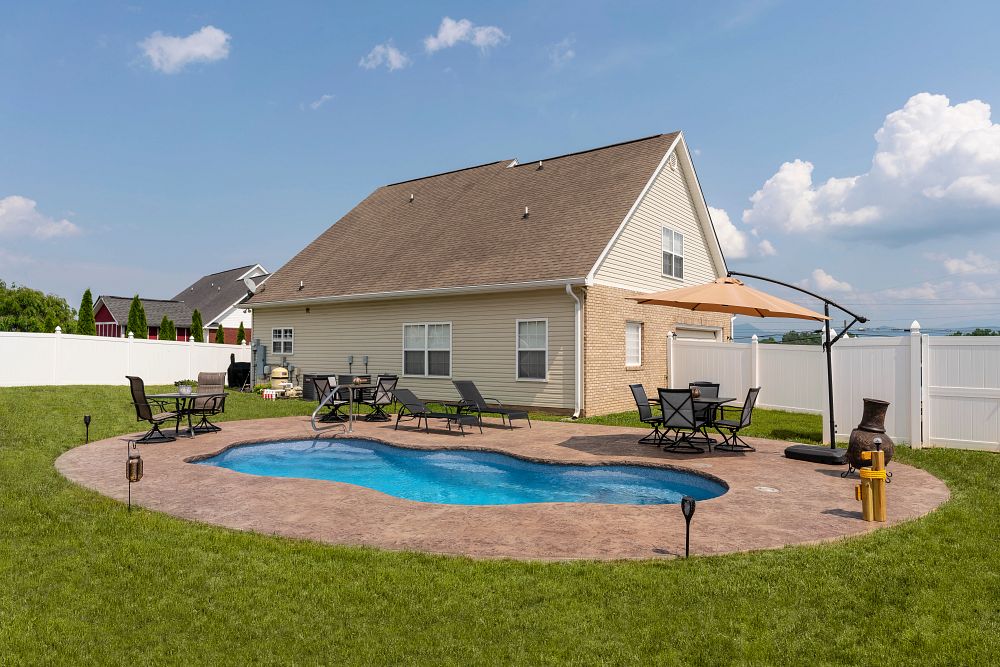
Larger Pool Considerations in Louisiana
If you live further inland in areas including Natchitoches and Alexandria, LA, a larger, more spacious pool can be a treat for the whole family to enjoy. Suburban areas may offer families larger plots of land with backyards ready to accommodate a bigger pool alongside accoutrements like a covered pergola to beat the heat or a swing set for the kids to play.
Craving something large and luxurious? The freeform Synergy has a generous 40’ length, making it equally ideal for exercise or entertaining. Elegant tiered wedding cake steps are non-slip, allowing for easy and safer entry for kids, seniors or mobility-compromised loved ones.
For a medium-sized option that gives you more space to use your backyard for other purposes, the kidney-shaped Valencia offers ample space with graceful curves, swim-up seating and slip-resistant steps.
Another reason to consider a larger pool is Louisiana’s lower cost of living, which is 9% lower than the national average. Additionally, the state’s cost of goods and services – including the cost of a pool and its installation – is 4% lower than the national average, making an inground pool with tons of exciting features an even more attractive proposition.
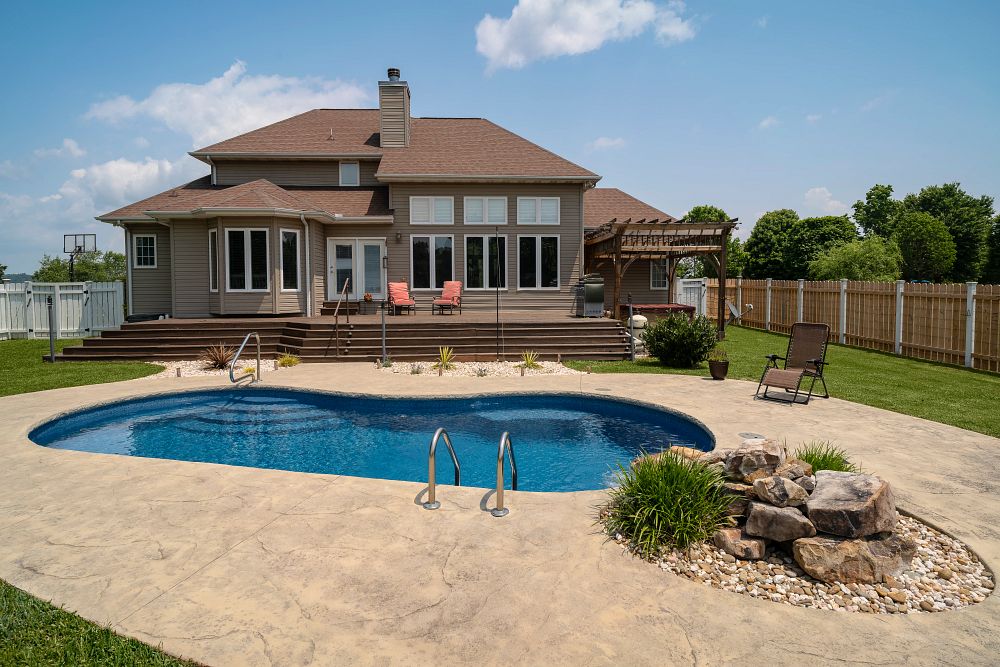
Inground Vinyl Liner Pools in Louisiana
Inground vinyl liner pools are another outstanding option for Bayou State residents on the prowl for a new pool. Vinyl liner pools are durable, highly customizable, and almost as low-maintenance as their fiberglass counterparts. Additionally, vinyl liner pools can be a cost-effective option for families who are ready for a pool.
Vinyl Liner Pool Designs for Louisiana Homes
If you’re ready to take the plunge into pool ownership, but want a more economical option, vinyl liner pools can be a great choice. Their flexibility of design and lower cost offers more room in your budget for custom upgrades like tanning ledges, water ledges, or multiple entry points.
It is important to point out, however, that while vinyl liner pools are a cost-effective option for homeowners, the lower cost should be weighed against geographic considerations that Louisiana residents face. For instance, if your home is in closer proximity to a marsh, swamp or standing body of water your pool may attract more insects that can potentially damage your liner. (Keep in mind that a backyard swimming pool is a standing body of water itself!) Additionally, LA’s risk of flooding and hurricanes can cause objects to fly around or land in your pool, potentially puncturing your liner and requiring you to replace it ahead of its typical lifespan once the dust (and water) recedes.
Louisiana’s humid climate can encourage algae growth, making regular cleaning and maintenance all the more important. Although fiberglass has a reputation for being more resistant to developing mold and algae, a proper maintenance of your vinyl liner pool can keep algae at bay.
Benefits of Vinyl Liner Pools for Louisiana Homes
While it’s important to weigh all of the factors involved in choosing the right pool materials, vinyl liner pools offer a lot of benefits. Not only are they affordable, but they’re highly customizable. Vinyl liner pools allow you to customize everything from its shape and size to liner colors and patterns, as well as the variety of add-ons built into your pool.
Although vinyl pools come in many of the same shapes and sizes as fiberglass models, these pre-designed options are the perfect springboard to tweak with your dream pool in mind. Working with a licensed professional builder can help you choose add-ons to enhance your pool’s design and make your pool even more of a source of enjoyment.
Even the most basic vinyl liner pool can be equipped with such features as multiple entry and exit points to make it easier to get in and out of your pool, fun water features and fountains, or even colorful LED pool lights to rival even the most colorful display marching down Bourbon Street!
Vinyl liner pools also are relatively easy to maintain. Although they require slightly more maintenance than a fiberglass model, they’re far less maintenance-intensive compared to older materials like concrete or gunite.
Older concrete pools require resurfacing once every 10 years, as these materials are porous, more prone to developing algae, and can get rough and chalky with age. By contrast, a well-maintained vinyl liner can last roughly 10 years, but you can replace it sooner, giving your pool a fresh new face that overhauls its aesthetic value. And replacing a liner costs considerably less than resurfacing an entire concrete or gunite pool.
To see all the potential that a vinyl liner pool holds, browse through some of our favorite vinyl liner pools that Latham has brought to life throughout Louisiana. Even if you don’t see your ideal pool among these offerings, that doesn’t mean it’s not possible. Check with a local independent pool builder to see even more pics and videos of custom vinyl liner creations not available in their online portfolio.
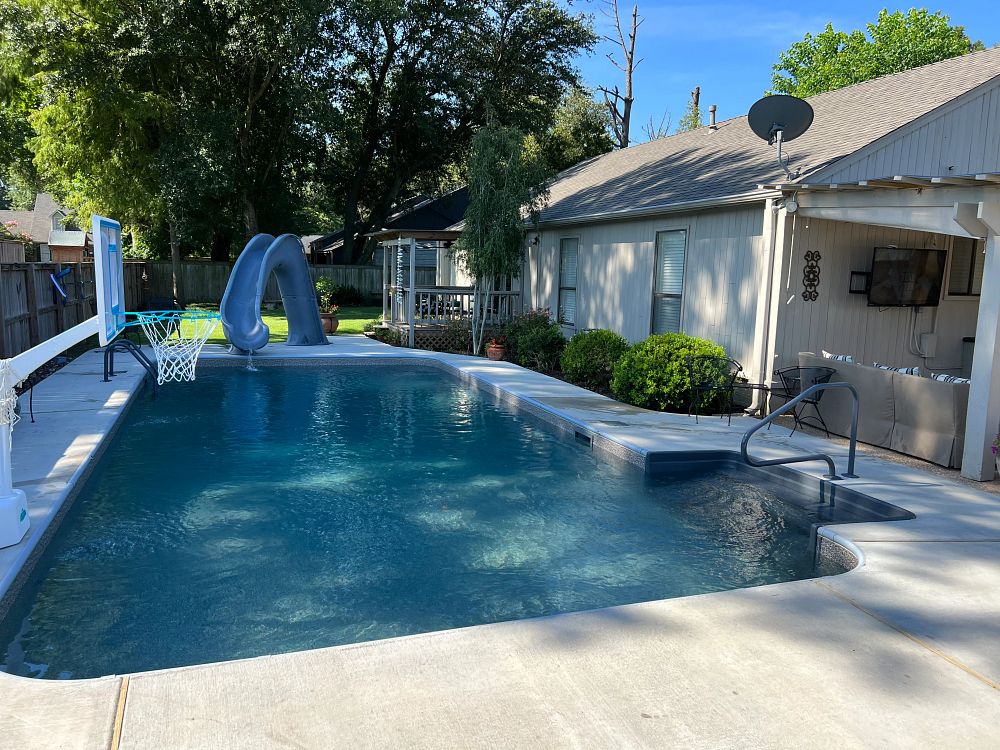
Flexible Designs for Any Lifestyle
There’s a lot to love about vinyl liner pools. Perhaps at the top of the list is that vinyl liner pools are highly customizable, capable of being shaped – and reshaped! – to accommodate lifestyle changes through the years. A vinyl liner pool can be a great choice for smaller yards in jam-packed neighborhoods to areas with more spacious backyards.
With a vinyl liner pool, you’re not locked into a particular size or shape forever. You can easily remove or add features through the years, ready to help you maximize your enjoyment no matter what phase of life you’re in.
If you’re a young family with kids, a vinyl liner pool can be customized to include exciting and inviting features for children. From slides to diving boards to water fountain flumes that create a lively sprinkler effect. You can also add multiple entry points to your pool, giving young swimmers who get tuckered out easily an easy exit route.
When the kids are grown and you’re easing into your golden years, you can easily remove some of the kid-friendly features and replace them with a tanning ledge and swim-up seating to renovate your pool, transforming it into an outdoor oasis for entertaining. (Or, if you have grandkids, you can keep some of the at-home-waterpark-style features to give them even more incentive to visit!)
If, in time, you’d prefer to have less pool to take care of, your vinyl liner pool can be reshaped and reimagined as a smaller pool that still offers lots of relaxation and fun – albeit in a more compact package.
No matter where you live in Louisiana or where you’re at in your life, a vinyl liner pool will be a part of your family and backyard for years to come.
Transforming or Replacing Your Current Pool
Vinyl liner pools are also a fantastic and cost-effective option to replace an older concrete or gunite pool. Even a well-maintained concrete pool can become a money pit over time, requiring you to throw more money and elbow grease into taking care of it.
Because concrete pools are porous, they are more susceptible to developing algae – which is only further accelerated thanks to Louisiana’s humid, muggy conditions. Algae bloom can produce unattractive stains on your pool’s surface and hit you with the double whammy of making it more difficult to balance your pool’s water chemistry.
Concrete pools can also become rough and chalky with age and need to be resurfaced roughly once every ten years. The cost to resurface a concrete pool once per decade can be considerably higher than the cost to replace a vinyl liner every ten years – not to mention the added time savings involved with a lower-maintenance vinyl liner pool option.
How often should you replace or update your vinyl liner in Louisiana?
According to Brian Hebert with H2O Pool Service, Hammond, “vinyl liners typically need to be replaced after 8-10 years on average in Louisiana.”
Certain geographic factors can play a role in prematurely having to replace your liner. Vinyl liner pool owners in Louisiana, especially those in areas frequently hit by floods and hurricanes, should be especially mindful, as this can prompt you to have to replace your liner sooner.
Louisiana’s high humidity makes it a prime breeding ground for pool algae, while also providing optimum conditions for bugs and insects that thrive on stagnant water and added moisture. This can require a bit more upkeep in ensuring algae is kept at bay with weekly cleanings and gentle scrubbing of your liner.
Small bugs can also leave tiny perforations in your vinyl liner, requiring pool owners to be vigilant about patching and repairing those small tears before they become larger. While there may be a temptation to go ham with the chlorine to keep bugs at bay, it’s important to remember that too much chlorine can throw off your water chemistry and also slowly eat at your liner, compromising its integrity.
Additionally, Louisiana’s tumultuous weather patterns and position within the path of hurricanes can also require more frequent replacement of vinyl liners. Should flying debris land in your pool, it may tear or puncture your liner, requiring a replacement.
However, under optimum and happier circumstances, there may be times when you want to change your liner after years of faithful use. Maybe you want to reshape your pool or add or subtract features? Replacing your vinyl liner is an easy and less expensive way to give your pool a makeover.
If you’re planning on upgrading or remodeling your pool, you may want to plan these projects alongside replacing your vinyl liner. Pool renovation projects like adding a tanning ledge, steps or pool lights are more invasive in nature and your pool installation professional would need to remove and replace your liner anyway. Thoughtful planning ahead can save you time, money and headaches on the road to giving your pool a beautiful new look!
What to Know About Installing an Inground Pool in Louisiana
Preparing for a new pool is an exciting time. However, in order to make the dream of a breathtaking backyard oasis a reality, some well-thought logistics need to come into play. Regardless of whether you want a fiberglass or vinyl liner pool, it’s helpful to know what to expect during the installation process.
Typically, the best time to install a new pool in Louisiana is during fall and winter months. The Bayou State’s balmy year-round weather means that LA residents don’t have to worry about hard winter ground posing a challenge during the excavation period. Similarly, installing in fall or winter leaves ample time for your pool project to be completed so it’s ready to enjoy the following spring and summer.
Additionally, breaking ground on your pool installation during winter months means you won’t have to worry about hurricane season putting a crimp in your plans. Louisiana’s prime hurricane season occurs between June and November, with the heaviest risk falling between August and October.
With those helpful tips in mind, we’ll walk you through some of the more nuanced facets of pool installation for both fiberglass and vinyl liner models.
Installing a Fiberglass Pool
One of the many things to love about fiberglass pools is how quickly they can be installed. Because fiberglass pool shells are manufactured off-site, they can easily be transported to a freshly-dug space in your backyard, putting the installation process on fast-forward. In addition to getting to enjoy your gorgeous new pool sooner, it also translates to a shorter “ugly stage” for your backyard, reducing the amount of time between staring at an empty hole and gazing out upon the pool of your dreams.
Learn more about the fiberglass pool installation process.
Installing a Vinyl Pool
The process for installing a vinyl liner pool differs slightly from the fiberglass installation process – specifically, because your building team will need to excavate the space and construct pool walls. Your team will measure the space and begin digging, laying the groundwork for a custom-built creation that works with the unique constraints of your yard. The process ends with your team filling the pool with water to help seal your liner in place, making the final cuts for a precise fit.
Learn more about vinyl liner pool installation.
Benefits of an Automatic Pool Cover
There are numerous benefits to automatic pool covers, ranging from saving on energy costs, reducing pool maintenance, and that autocovers can help prevent accidents when your pool is left unattended.
Whether you choose a fiberglass or vinyl liner pool, saving room in your budget for an autocover can help you maximize the return on your investment. If you’re working with a smaller pool budget, keep in mind that many rectangular pool models are autocover-ready. More intricate shapes, such as freeform pools, may require a custom-cut autocover, which can cost more than a prefabricated cover.
In Louisiana, hot, sticky temperatures combined with standing water can be a homing beacon for bugs. A retractable autocover can help prevent these pests from making their way into your pool. Additionally, Louisiana’s location on the Gulf Coast often puts it in the path of tropical storms. An autocover can help prevent falling branches and leaves from landing in your pool during heavy seasonal rains.
Falling leaves and debris can also contribute to algae bloom. When coupled with LA’s ultra-humid conditions, any untended leaves can create optimum conditions for developing algae, which can not only detract from your pool’s appearance, but also make it more difficult to balance your water chemistry.
An autocover can also help you save between 50% to 70% on energy costs, accompanied by the added benefit of reducing water evaporation and the need to rebalance your water chemistry.
Most importantly, autocovers can help save lives, preventing kids and pets from accidentally falling in when you are not around to supervise pool usage. An automatic pool cover can help prevent uninvited guests from hopping your fence and using your pool without permission.
Do I need a winter pool cover in Louisiana?
Given that Louisiana typically receives an annual average snowfall of 0.2”, pool owners in the Bayou State don’t have to worry about a winter pool cover. Winter covers are specially designed to withstand the weight of heavy snow and provide your pool with protection during colder months, as large snow drifts could potentially harm the mechanics of an autocover.
While Louisiana doesn’t get much – if any – snow, winter temperatures are still too low to regularly use your pool during colder months, falling within the mid-50s and low-50s statewide. That said, a heating element or spillover spa can help you use your pool during colder seasons, as Louisiana’s coldest temperatures don’t fall within the freezing range. However, if you don’t have a heated pool or spillover spa, it’s important to follow best practices to close your pool over the winter and re-open in spring.
How to Maintain Your Louisiana Pool
Both vinyl liner and fiberglass pools require minimal upkeep. Each week, you can expect to skim your pool regularly and check your water chemistry. This can keep bugs, dirt, and debris from accumulating and potentially clogging your filtration system.
Even if you live in an area like Louisiana where “low” temperatures are still above freezing, it’s important to winterize your pool before colder temperatures set in. This can involve giving your pool a thorough cleaning and balancing the water to prohibit algae growth over the winter, as well as partially draining it. (Note: Never fully drain a vinyl liner pool! It’s also not a great idea to fully drain a fiberglass pool, either.)
Depending on the type of material you choose for your new pool, your maintenance schedule and checklist can vary in order to keep your pool looking and running its best.
Fiberglass Pool Maintenance
Fiberglass pools aren’t just easy on the eyes, they’re easy on maintenance. With a fiberglass pool, you can expect to conduct weekly maintenance tasks, like testing your pool’s water chemistry, emptying filter baskets and skimming your pool. Roughly once each month when you’re actively using your pool, be sure to check your filter and back flush your filtration system to keep it in good working order.
Engaging your autocover during tropical storms can help prevent debris – such as falling branches – from falling into your pool and potentially scratching its beautiful fiberglass coating.
For more helpful tips, check out our checklist of fiberglass pool maintenance tasks!
Vinyl Liner Pool Maintenance
Although vinyl liner pools require a bit more maintenance than fiberglass pools, the extra effort is worth it in terms of cost savings. Once you get into a groove, weekly maintenance tasks like skimming and testing your water’s chemical and pH levels are a breeze!
Set aside time each week to give your pool a gentle scrubbing with a soft-bristled brush. This can help keep your liner from developing stains, as well as prevent algae bloom and calcium build-up.
You should also periodically check your liner for leaks and patch any small tears you see to prevent them from getting bigger.
Beyond routine maintenance, you can prolong the lifetime of your liner by making sure to only use soft pool toys like foam pool noodles and floaties. Additionally, engaging your autocover during tropical storm season can prevent debris and falling branches from landing in your pool and accidentally puncturing or tearing your liner.
For more pointers, check out our vinyl liner maintenance checklist to help you keep your pool in tip-top shape!
Louisiana Inground Pool Costs
If you’re installing a pool in Louisiana, the cost can vary based on a number of factors. Your pool’s size and whether you choose a fiberglass or vinyl liner pool play a role in determining the final cost. However, it’s important to also factor in the cost of decking, coping, and any add-ons you want to create the pool of your dreams. This can include adding multiple entry points, water features, or even a spillover spa.
In addition to features you want, you’ll also want to consider the cost of more practical add-ons like an automatic pool cover or legally-required fencing. Louisiana state pool regulations dictate that all pools deeper than 2.9 feet must be surrounded by a fence at least 4 feet high. However, your local parish, city, or municipality may have even stricter requirements around fencing.
Although purchasing a pool is a big-ticket item, Louisiana’s lower cost of living and lower-than-average taxes on goods and services make owning a pool an attractive prospect. Even if you don’t have funds reserved for a pool right now, there are a number of pool financing options available to put you on the path to pool ownership right now.
Rules and Regulations for Installing an Inground Pool in Louisiana
Before you take the plunge into pool ownership in Louisiana, it’s important to understand some of the responsibilities and regulations for owning a pool in the Bayou State. Because state and local laws change over time, it’s important to do some of your own investigation around rules and regulations for installing a new pool.
And while Louisiana has several pool laws that blanket the state, your parish, city, or municipality may have their own set of regulations around pool ownership that may be more stringent than those at the state-wide level. Consult with your local building office to get more information on these laws and ensure your pool is compliant. Working with a licensed professional builder can also help you better understand these laws and ensure your pool is up-to-code.
To help you get a leg up on your research, here is a list of some of the most common questions we get around pool rules and regulations in Louisiana.
Do I have to have a fence around my pool in Louisiana?
Louisiana state pool laws require that all pools deeper than 2.9 feet must be surrounded by a fence or barrier at least 4 feet high. This barrier should be self-latching with latches placed no lower than 3 feet high, out of reach of children. This fence or barrier should not be climbable, having no footholds.
How tall does a fence around a pool have to be in Louisiana?
While Louisiana requires a 4-foot fence or barrier around all residential pools deeper than 2.9 feet, individual parishes, cities, and municipalities throughout the state may have their own requirements. These requirements are often stricter than those at the state-wide level.
While (presently) both the city of Lake Charles and Covington, LA in St. Tammany Parish require a 4 foot high fence around pools, Covington has specific rules around set back lines. In Covington, swimming pools can only be located in a side or rear yard, at a minimum of 5 feet from the side property line and 10 feet from the rear property line.
Other Louisiana cities – such as Monroe, LA – have even more rigid requirements. In Monroe, every pool that can hold 5,000 gallons or more must be surrounded by a fence at least 6 feet high. In addition, the city requires a walk space of at least 3 feet wide between the pool and the barrier.
Enjoying Louisiana Pools Through the Seasons
Louisiana is known for long, languid summers, mild winters, and relatively balmy weather year round. And while Louisiana only sees a fraction of an inch of snow each year, winters aren’t quite warm enough to keep your pool open past October. Although a heated pool or spillover spa can help you enjoy your pool in cooler temperatures, you’ll likely need to bid your pool adieu before November. But don’t worry! Taking care to properly close your pool for the season can make for a much easier reopening come springtime.
Beyond incorporating features that can help you get in as much pool time as possible, here are a few seasonal pool maintenance tips for Louisiana pool owners:
- Spring: While Louisiana has a reputation for flat land and swamps, at least 55% of the state is covered in beautiful forests. These trees can translate to heavy pollen when spring is in bloom. If left untended, these tiny pollen grains can clog your pool filter. Be sure to skim your pool weekly, as these tiny yellow or green granules can also contribute to algae growth.
- Summer: Between spring and early fall, Louisiana is often in the path of tropical storms and tornadoes, with areas along the Gulf Coast at risk of flooding. Take proper precautions to protect your pool against falling debris – such as tree branches or lightweight items that can become projectiles in high winds. Falling debris that lands in your pool can potentially scratch your pool’s fiberglass coating or vinyl liner. In addition to helping safeguard your pool against natural disasters, Louisiana residents should also keep up with weekly pool maintenance during summer months Louisiana’s hot, humid climate can create less-than-ideal conditions for algae to develop. Regular skimming, balancing your water chemistry, and a gentle scrub can help to keep algae at bay.
- Fall: A heated pool can help you enjoy your pool during early fall in Louisiana. Consider a heated pool or spillover spa. However, be prepared to continue to skim and balance your water, given that Louisiana’s high humidity can contribute to algae growth if you’re not properly maintaining your pool. Regularly skim any fallen leaves from your surface, as they can contribute to algae growth. An autocover can also help prevent leaves from accumulating on the surface of your pool.
- Winter: When it’s time to close your pool for winter, make sure to remove all air from water lines and pool equipment. Although many Louisiana pool owners close their pool themselves, you can also enlist a professional to help you properly winterize your pool.
Louisiana Pool FAQs
What type of inground pool is best for Louisiana?
Both fiberglass and vinyl liner pools have their unique perks, depending on where you live, the size of your backyard, and budget. The best type of inground pool is the one that offers you the most enjoyment.
Fiberglass pools have a smooth surface, making them less susceptible to algae bloom. This quality makes them ideal, taking into consideration Louisiana’s hot, humid climate lends itself to creating the right conditions for algae to bloom. Fiberglass’s slick surface and Latham’s innovative Crystite gel coating helps discourage algae from adhering to your pool’s surface, making it a better option for those who want a beautiful pool with minimal upkeep and better odds at winning the war on pool algae.
For Louisiana residents looking for a less expensive option with flexibility to customize their pool now and in the future, vinyl liner pools can be a fantastic option.
Does a pool increase home value in Louisiana?
On average throughout the US, adding a new pool can increase your home’s resale value between 5% and 8%. In Louisiana, a well-maintained inground swimming pool can potentially increase the value of your home by nearly 7%. Even if you aren’t planning to sell your home in the immediate future, adding a pool gives you a place to let the good times roll with friends and family in the years ahead.
Can you have an inground pool in Louisiana?
Yes, you can certainly have an inground residential pool in Louisiana! However, remember that with great pool power, comes great responsibility. Be prepared to adhere to state laws that require a minimum of a 4-foot high barrier or fence around your pool, as well as any local, city, parish, or municipal laws pertaining to pool ownership.
Louisiana Inground Pool Installation Access
If you live in the Bayou State and dream of having a beautiful new pool in your backyard, Latham is here to help you turn that dream into a reality. We’ve helped countless homeowners throughout Louisiana become happy pool owners, including those in:
- Natchitoches, LA
- Shreveport, LA
- Baton Rouge, LA
- New Orleans, LA
- Madisonville, LA
- Lafayette, LA
- Lake Charles, LA
- Iowa, LA
- Alexandria, LA
- Bunkie, LA
- Monroe, LA
- West Monroe, LA
Start Building a Pool for Your Louisiana Backyard Today
A new pool can be a beautiful place to congregate with family and loved ones right now, as well as for decades to come. Speak with a licensed professional builder today to start making memories from the comfort of your own Louisiana backyard now.
Contact us to learn more.


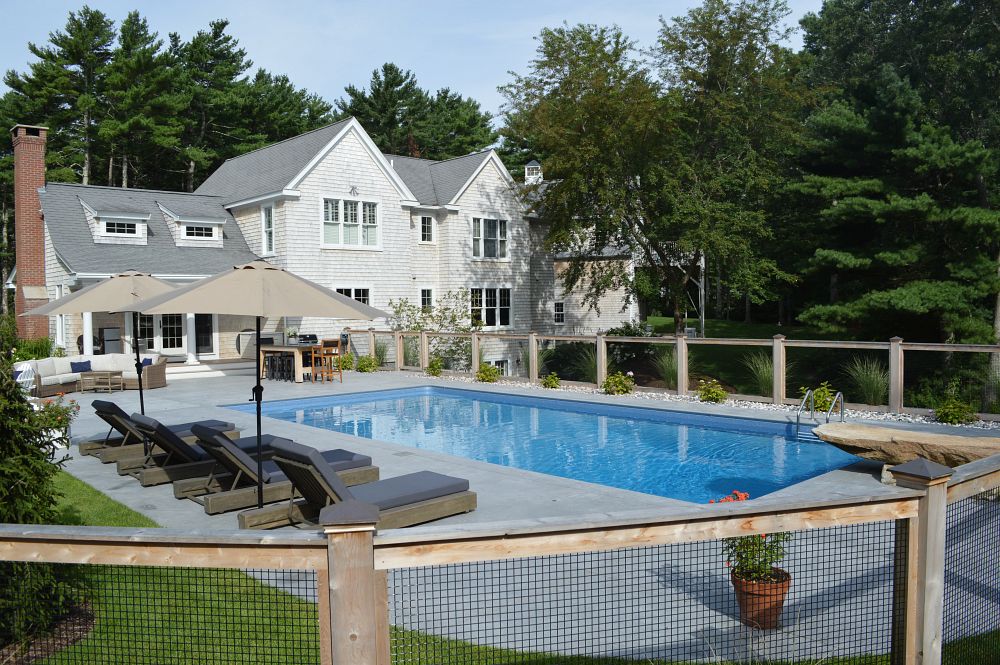
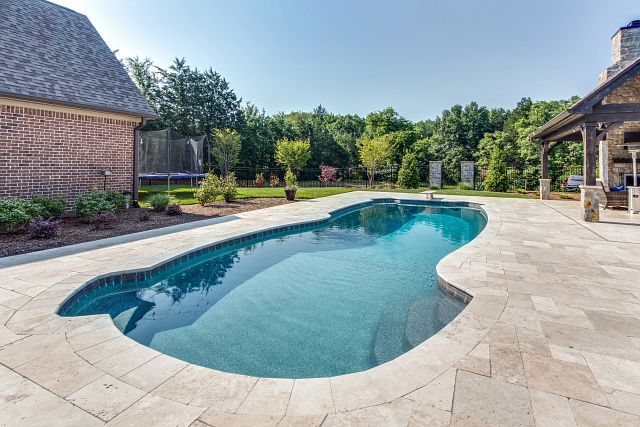
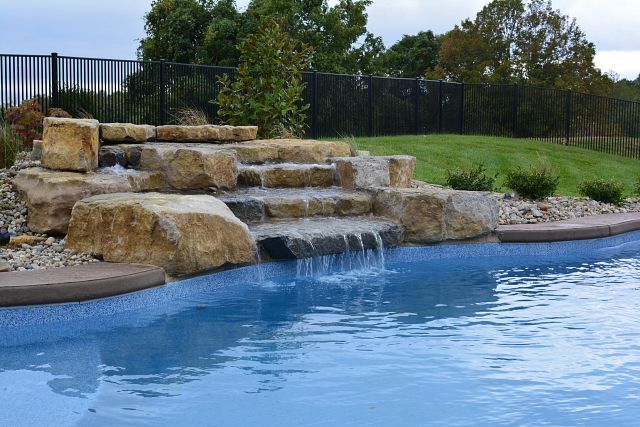
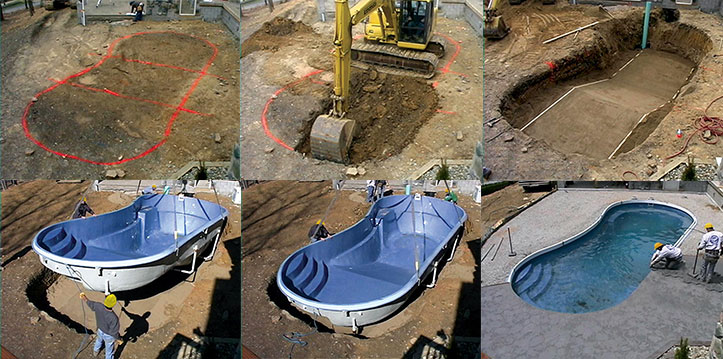
Join the discussion